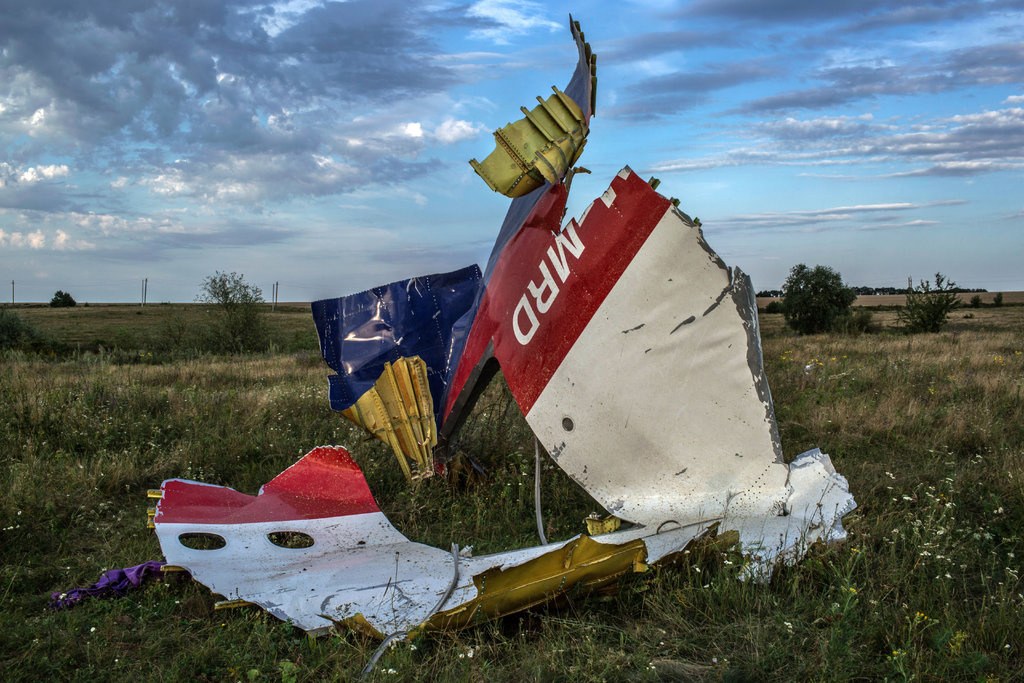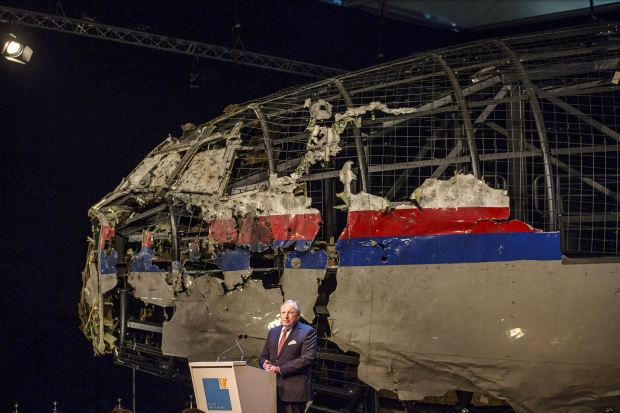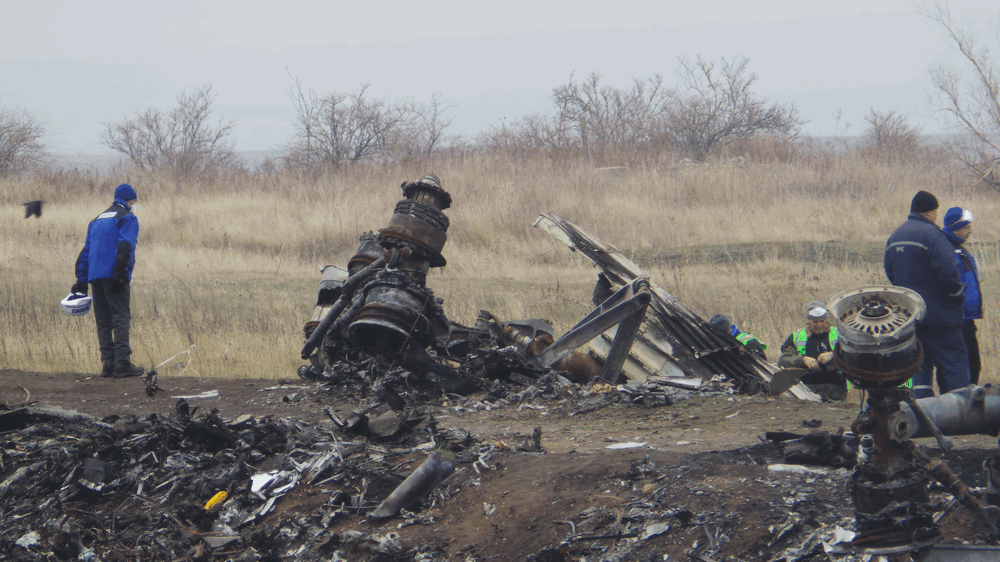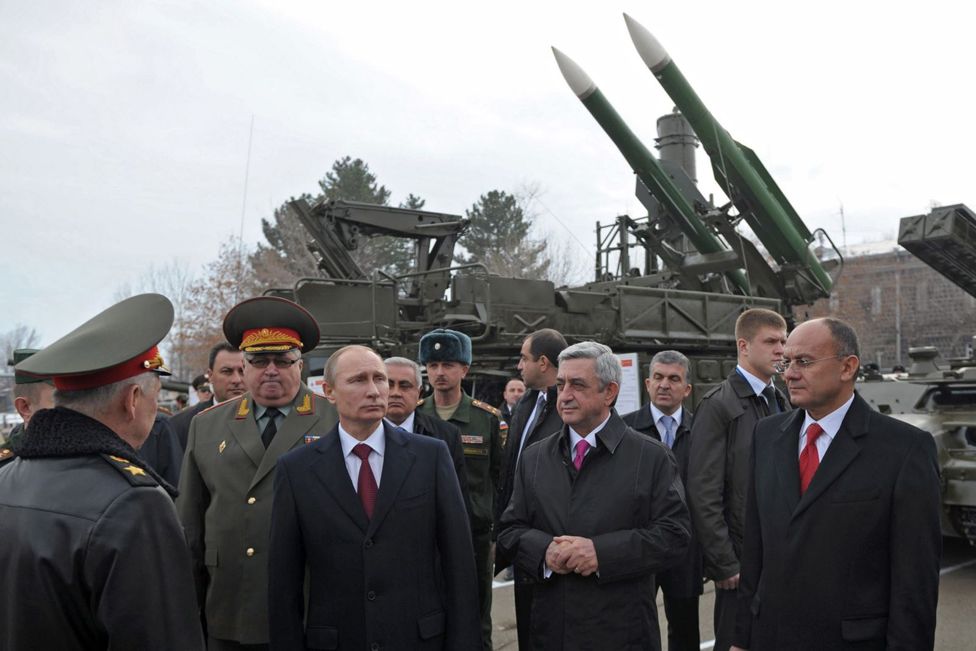The District Court of The Hague that is hearing the case of the downing of the airliner MH17 has finished another stage of the trial. in late June, the defense of one of four defendants, Russian retired Lieut. Col. Oleg Pulatov, presented their position in court.
To recap, four militants are put on trial in absentia. The four defendants are Igor Girkin (who called himself "Minister of Defense" and "Commander-in-Chief of the DNR"), his deputy Sergey Dubinsky (also called "Colonel Petrovsky" or "Khmury" in telephone conversations), chief of a "DNR" intelligence unit Leonid Kharchenko, and the former Russian lieutenant colonel Oleg Pulatov (all but Ukrainian national Kharchenko are Russian citizens, - Ed.).
The latter decided to hire lawyers, formally by himself, but according to popular belief, the defense for Pulatov is provided by Russia, which gains access to the case files in this way.
These hearings contributed to the arguments in favor of Russia's role in the trial.
Linguistic strategy of the defense

Did the defenders try to prove that militants were not involved in the MH17 crash, which killed 298 people?
The short answer is no. At least for now.
Detailed explanations of the prosecutor's office about how and why it eliminated all other versions did not convince the defense.
Rhetoric devices and demagoguery immediately set the tone of the defense's argument. Pulatov's lawyer said that he himself and his colleague were the first people in six years to publicly question the investigation, go against the tide, and show a different perspective on the case.

For example, they complained that only 30% of the plane wreckage was recovered, which made it impossible to reconstruct the vehicle sufficiently for forensic research. Or that the Dutch Prosecutor's Office could not directly obtain data from mobile phones in Ukraine, which made it dependent on Ukraine's Security Service (SBU) in this respect.
[highlight]But the main idea was that the investigation was focused too much on the narrative that the airliner was shot down by the Russian Buk,[/highlight] which, the defense lawyers believe, wasn't proven.
And explaining this, the defenders of the Russian were not above taking phrases out of context.
An interesting example is the doubts of the defense regarding the translation of the phrase by the Rostov flight controller said in response to a question from a Ukrainian colleague as to whether he saw the MH17 aircraft. The Russian said (word-by-word translation),
"No-no-no, nothing. We cannot see nothing." But English doesn't have such multiple negations, so in the English-language examination results, it is [correctly] translated as: "Yes, yes, yes, nothing. We see nothing."
Apparently, it is difficult for the Dutchman to realize that for Russians the statements "no, I don't see" and "yes, I don't see" have the same meaning - "I don't see."
But what is even more interesting is that a certain "independent technical expert from Moscow" Yuri Antipov, whom the Russian federal media have been actively citing, claimed a few days earlier that this very detail of the translation as alleged evidence of the prosecutors' "lie."
[highlight]Very soon, this myth of Russian propaganda moved into the arguments of Dutch defenders.[/highlight]
In general, the defenders questioned the language issue a lot, because witnesses from the Donbas, especially those anonymous ones, testified in Russian or Ukrainian, but they were asked questions in an unknown language - maybe there was a translation mistake? This needs to be investigated, the defenders believed.

The defense even stated that there was a necessity to interview the translators of conversations intercepted by the SBU.
Of course, the defense team had to explain why they had such a bias against the SBU - and so they did, explaining that the goal of the secret services is not establishing the truth, but the protection of national interests. To illustrate this argument, Pulatov's defense showed a video clip of Colin Powell's speech on 5 February 2003, with evidence against Iraq and his interview 14 years later, in which he admitted that every word of his presentation was approved by the CIA.
Now, the CIA can't be trusted, and so cannot be the SBU.
Yes, it wasn't a joke, it really was an argument of the defense.
Tsemakh et al.

Previously, European Pravda suggested many times that handing over Volodymyr Tsemakh who was captured in a raid in the Donbas and who is supposed to have been the air defense of Snizhne in 2014, would be used against Ukraine and the MH17 case investigation.
It was once again confirmed during the current hearings.
The defense instrumentalized Tsemakh's testimony given to the Dutch when he was in a Ukrainian pretrial detention facility. He stated that he had never seen the Buk. Now the attorneys say that Tsemakh is a key figure in the main scenario, without investigating his role the case cannot be tried.
The defenders also believe that it is impossible to assess the role of the four accused without answering the questions of who launched the missile, who gave the order, what was the purpose of launching the missile, what was the chain of command from Russia, what was subordination, and so on. Thus, in their opinion, the case, which was investigated for more than five years with incredibly detailed examinations, is still "raw," and prosecutors were guided by the desire to bring "at least something" to court.
Like, all the information and evidence provided by Ukraine was aimed only at proving the Russian Buk version, while other evidence was eliminated.
Most of the telephone conversations the international Joint-Investigation Team (JIT) received as evidence came from the SBU. And the SBU shouldn't be trusted, according to the defense, because it's unknown what records this agency withheld. The SBU also provided testimonies of the witnesses who are charged with other crimes in Ukraine, so their testimony cannot be considered reliable.
And more, some wreckage of the plane, according to the defense of Pulatov, could be planted by Ukraine.
In general, according to the defense, the work of the JIT was biased, and Ukraine had too much influence on the investigation.
Russian propaganda star as "evidence" against Ukraine
But the main task of Pulatov's lawyers seems to have been to demonstrate that the version of downing the passenger airliner by the Russian Buk complex is far from being the only one. Therefore, they were looking for leads to indicate that the investigators didn't completely rule out other possible scenarios.
First of all, the leads that indicated that the demise of MH17 was caused by a war crime of the Ukrainian army.
One of Pulatov's defenders suggested, among other things, that Ukraine used passenger planes in the anti-terrorist operation zone as a human shield.

To prove it, he showed a video from 18 June 2014 (i.e. the one recorded a month before the shooting down MH17). In it, Elena from the "Sloviansk militia" says that there is no electricity in the city, so people collect water from a fountain (which for some reason still has water) and that they are suffering from daily bombardments of the junta [this is how Russian propaganda labeled the Ukrainian government at that time, - Ed.].
But the defender focused on the other point in Elena's words. She allegedly saw a Ukrainian bomber approach as it was hidden behind a passenger plane (note: passenger airliners in the area are cruising at an altitude of more than 10 km), then it would bomb residential areas, then would hide again behind the non-military aircraft, thus provoking the "militia" to actions in which innocent passengers could have died.
The Dutch lawyer's logical line looks like this (almost verbatim): if a Ukrainian plane flew where civilian liners were present, then it could use them as a human shield. Therefore, the prosecutor's office didn't fully present the nature of the conflict and Ukraine's "possible war crimes."
The second Dutch defender of the Russian defendant also settled on this version. She returned to the "testimony" of the "militiawoman" and added a few more videos, now the ones created by Russia Today [the Russian state-funded channel RT mostly targeting foreign audiences all over the world, - Ed.].
For example, she showed an interview of the boys kicking a football around who expressed the opinion that the Ukrainian fighter jets shot down MH17. Having shown these videos, the defender laid a claim to investigators that none of these "witnesses" were questioned, and therefore, the version can’t be excluded.
Let's put aside the fact that these statements are obviously at odds with logic. It is much more interesting to give attention to the identity of the lady, whose "testimony" the defenders used in The Hague.
She is Elena Kolenkina who had really lived in Sloviansk before the war and, when the conflict erupted, became one of the faces of local propaganda there, regularly making statements as a “witness of the junta’s crimes.”
There is a video on Youtube filmed in the spring or early summer of 2014, in which a pro-Russian Crimea resident, Serhiy Korechenkov, teaches her the most “effective” ways to tell about Ukraine’s crimes following a script written for her.
Moreover, in 2014 Kolenkina married a well-known Russian militant, Arsen Pavlov, better known as "Motorola" (which, of course, does not deprive Elena of the right to testify, but puts a bar of her impartiality even lower).
Is it because they lack other options? Is the defense strategy more media-based than fact-based? Does the defense really hope that the judges will accept at least some of the dozens of such objections?
One can only guess.
Dragging it out
These are only several of the alternative options to the investigators’ main line of inquiry, according to which the plane was shot down by a certain identified air defense complex Buk that came from Russia and was evacuated back.
Pulatov's defense team suggested once again to consider a number of other options, earlier rejected by the prosecutor's office.
For example, is it right to reject the theory that the airliner was shot down by Ukrainians only on the footing that the missile was launched from the territory controlled by the “DNR”? No! According to the defense team, the Ukrainians are so insidious that they could enter the territory under the “DNR” control with Buk and launch a rocket from that place.
And it's not a joke, they really voiced this version at the hearing.
It is worth noting that Pulatov's defense was well aware that they couldn't prove the veracity of their theories, and therefore they acknowledged that all these alternative scenarios were unlikely, saying that their point was that those had to be investigated more thoroughly to later exclude them.
For example, the defense lawyers asked for at least an additional eight weeks to prepare their legal position - though not right away, but after their visit to Pulatov, which may take place after the quarantine measures are eased.
Also, The Hague court heard some elements from the basic set of Russian propaganda about Ukraine. In particular, the judges heard that "Yanukovych was removed from power by pro-Western nationalists (sic!)" Who staged a "violent conflict" in Kyiv and even captured 60 police officers. And all of this, the defense team suggested, the Hague court should investigate in order to adopt a deliberate decision.
However, it is clear that Pulatov's defense has not yet used all the available trump cards. In particular, they haven't yet tried to prove that Pulatov, Girkin, and others have "combatant immunity," and the defense have not challenged the jurisdiction of the Hague court, although this was expected of them in the first place.
In general, there is a clear logic in this seemingly strange defense strategy.
Russia needs to drag out the final court decision, which could pave the way for the pursuit of the next level of military leadership, as much as possible. And the team of Dutch lawyers, who receive an hourly wage, benefit from having the trial running longer and longer.
Therefore, the Hague defense team will be sincerely inspired to do their Russian client's will.

Andriy Guck is a lawyer, aviation law expert, and partner in Ante Law firm

Serhiy Sydorenko is an editor at European Pravda.
Read more:
- An unequal exchange: the spies and terrorists Russia got for releasing Oleg Sentsov and 34 other Ukrainian political prisoners & POWs
- Ukrainian court releases alleged MH17 accomplice Tsemakh on recognizance
- Ukraine arrests head of Snizhne anti-aircraft defense in summer 2014, possible MH17 case witness
- Major MH17 witness Putin’s trump card in Ukrainian prisoner exchange – Portnikov
- Tracing five years of pro-Kremlin disinformation about MH17: Infographic
- JIT charges four suspects over downing MH17, Bellingcat identifies eight more
- Flight MH17: Why can’t the Kremlin tell the truth?
- Novaya Gazeta identifies Russian colonel involved in shooting down MH17
- The most comprehensive guide ever to MH17 conspiracies
- Ukrainian dep’t at Russian troll factory exploded after MH17 crash: analysis of 750,000 tweets
- Ukraine had no reason to close its airspace above 10 000 m before MH17 disaster | Infographic
- Four years on, Russian MH17 disinformation campaign still going strong





